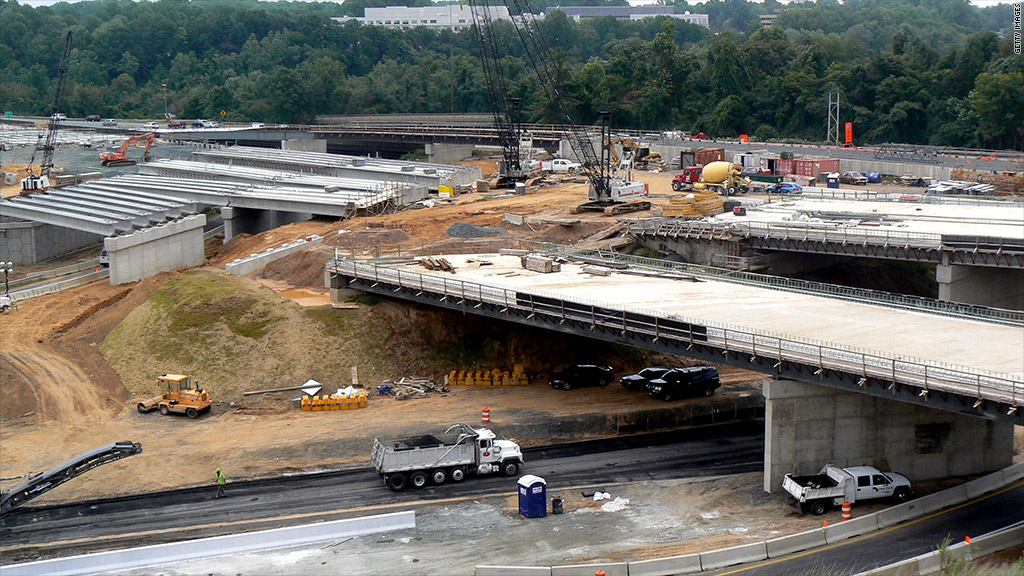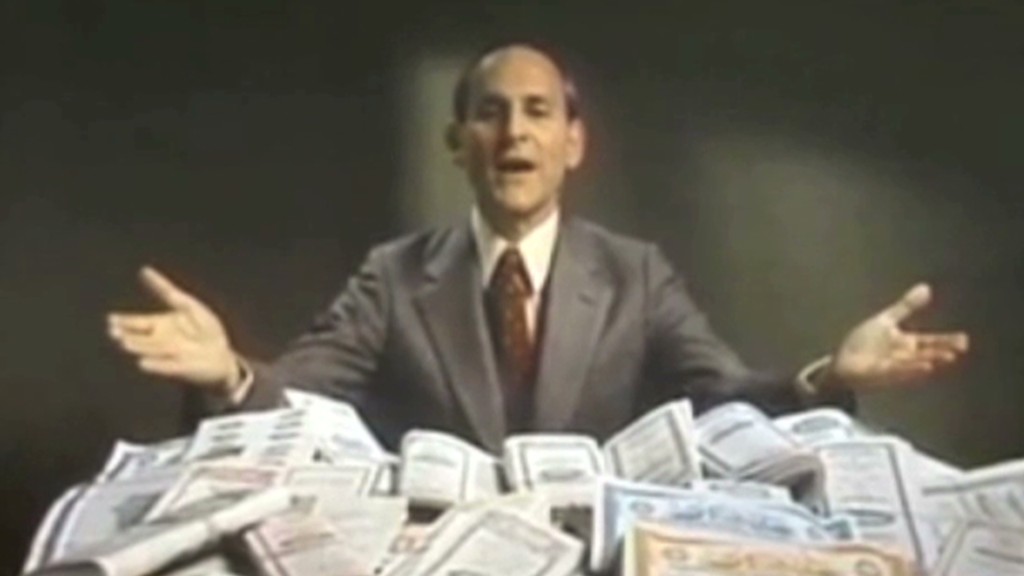
The nation's roads are up for sale. But who should have control over them?
State and local governments are in desperate need of cash for all manner of road, building and bridge repair, and are increasingly turning to private money for funding.
But the involvement of private investors is raising concerns over how much control the public may lose over its roadways.
Companies putting up the money include construction and engineering firms like Bechtel and Samsung, and big banks like Goldman Sachs (GS) and Merrill Lynch that aim to attract money from pension funds and insurance companies.
In exchange for the funding, the firms are getting an ownership stake in the projects. That means they'll get a cut of the tolls, and also be responsible for the maintenance.
The arrangement has some people nervous.
There is a fear that governments are losing some control of the roadways. If the maintenance doesn't get done, what recourse do they have to force the private firms to act?
Some have also questioned whether using private money is more expensive for the public than resorting to traditional means of funding: namely, the gasoline tax or municipal bonds.
"There has been some discussion on the cost," said Joung Lee, assistant director for finance at the American Association of State Highway and Transportation Officials. "Why would you opt for private [funding] at a higher cost of capital?"
Still, with proper contracts, Lee said the hope is the efficiencies gained from private construction, operations and technological innovation is enough to outweigh the concerns.
Related: Obama plan has $200 billion in economic boosters
Case in point: the new high occupancy express lanes on the Washington D.C. beltway.
Opened just a few weeks ago, the new lanes allow cars with just one occupant to use the carpool lane, if they're willing to pay a fee.
The idea was pitched by construction companies Fluor (FLR) and Transurban, using a mix of public money, bonds and private financing.
The aim is that the public will get less congested roads, several bridges repaired and a commitment from the construction firms to maintain the lanes for the next 70 years, while the construction companies and their financial backers get a cut of the tolls.
"It's a win-win," said Robert Puentes, a senior fellow with the Brookings Institution's Metropolitan Policy Project.

Nationwide, there have been 12 such public-private projects proposed in 2012 with a value of around $20 billion, according to the industry newsletter Public Works Financing. If they all move forward, it would be the most active year on record.
There have already been 10 projects either built or announced since 2008, including a tunnel linking the port of Miami to a major interstate, several other toll highway expansions, and a courthouse in Long Beach, Calif.
According to one estimate, there are now over 100 funds set up by private investors looking to get in on the action.
But the number of suitable projects is fairly limited. They mostly need to be in high-use, high-population areas where the toll revenue can exceed construction and operating costs.
But where it can work, experts see expanded opportunities, provided the deals are done correctly.


